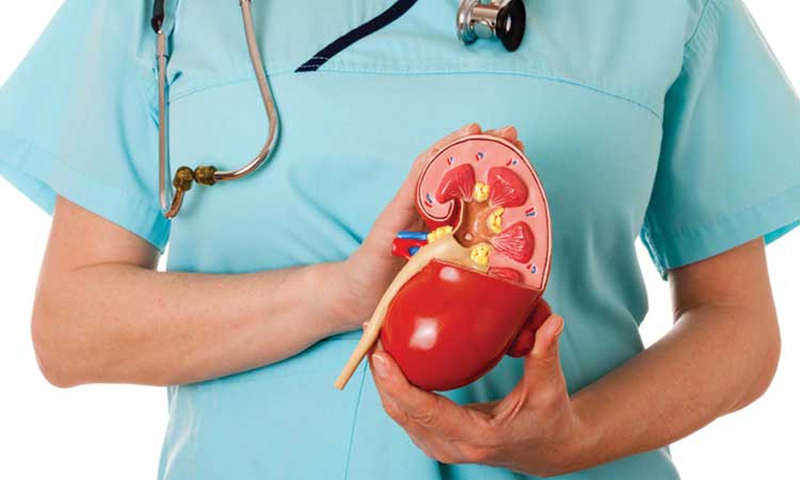Also referred to as pyelonephritis, kidney infection is a medical condition that can sometimes become serious. If kidney infection is not treated timely and properly, it can result in permanent damage to the kidneys or the infection can spread to the bloodstream, leading to sepsis that can be life-threatening. The treatment of a kidney infection is usually done by giving antibiotics to the patient and may require hospitalization in some cases.

What You Need to Know about Kidney Infection Recovery
Treatment:
If the treatment of your kidney infection is done at home, then usually a course of antibiotics lasting between 7 and 14 days is given.
For the majority of the people-excluding pregnant females-antibiotics referred to as Co-amoxiclav or ciprofloxacin are prescribed. However, in some cases, other antibiotics may also be recommended.
A painkiller such as paracetamol may also be given to help relieve the symptoms of high temperature and pain.
However, NSAIDs (non-steroidal anti-inflammatories) including ibuprofen aren’t recommended to reduce pain during a kidney infection as it may further deteriorate the kidney problem.
Recovery:
The majority of the patients embrace kidney infection recovery after a few days and the infection is completely cleared after about 2 weeks. Some patients may require taking time off from school or work, though this is not always needed.
If your symptoms are not improved 24 hours after beginning treatment, you should contact your physician for advice.
You may do the following to reduce pain and discomfort while you are recovering from an infection of the kidneys:
Heat application: You can apply a heating pad on your back, abdomen or side to decrease feeling of pain or pressure.
Using pain medicine: As already mentioned you can take a painkiller (preferably non-aspirin) that consists of acetaminophen (Tylenol or others) for discomfort or fever as recommended by your physician or take a medicine that they prescribe.
Drink plenty of water: Stay hydrated by drinking sufficient quantity of fluids which will help flush out the bacteria from your urinary system. It is better to avoid drinking alcohol and coffee until you have recovered as these can aggravate the frequency and urge to urinate.
An underlying medical problem including an abnormality of the structure of the urinary tract may result in recurrent infections of the kidneys. In such cases, your physician may refer you to a nephrologist (a kidney specialist) or urologist (urinary surgeon) for evaluation and determination of the cause. You may require surgery to repair an abnormality of the structure of the urinary tract.
Can Kidney Infection Lead to Any Complications?
In the majority of the patients full kidney infection recovery occurs if prompt treatment is provided. However, possible complications that can occur in some of the cases include:
In some cases bacteria/germs from the infection of the kidneys may get transferred into the bloodstream, especially if treatment is not given promptly. This may lead to sepsis or blood poisoning. This is a serious condition and can be life-threatening.
In pregnant females who suffer from pyelonephritis, it may occasionally result in early delivery of the baby or the baby born is of low birth weight.
Kidney infection can rarely result in the development of a kidney abscess, which is the collection of pus within the kidney.
The kidney may get permanently damaged in some cases by the infection.
Though these complications do not occur commonly, they are more likely to occur if:
You are severely ill with the infection of the kidney
You suffer from another problem of kidneys such as chronic kidney disease or polycystic kidney disease
You have kidney stones
You suffer from vesicoureteral reflux (a condition in which the urine can flow backwards from the bladder up to the kidneys)
You suffer from poorly controlled diabetes mellitus
You are older than 65 years of age
You are carrying a baby
A rare complication of kidney infection is emphysematous pyelonephritis, a condition which is characterized by rapid destruction of kidney tissues and release of toxic gases by the bacteria, which can collect in the kidneys. This complication can make you very unwell. This complication most commonly occurs in patients who have uncontrolled diabetes.
Prevent Recurrent Kidney Infections
Many kidney infections are caused by bacteria spreading from the bladder to the kidneys. Hence, simply reduce your chances of having a bladder infection to reduce your chances of having an infection of the kidney. Traditional preventive measures to reduce urinary infection include drinking sufficient amount of fluids, drinking cranberry juice and wiping from front towards back after going to toilet. Any problem that increases your chances of having a urinary infection such as constipation should be treated promptly. Any other problem which may be contributing such as kidney stones or a structural abnormality should also be treated.
Regular urine tests are done on pregnant females to test for infection. Even if there is no symptom and their urine shows bacteria, pregnant females are usually given antibiotics for prevention of any complications.
Some patients who have recurrent urinary infections are given a low dose of antibiotics on a continuous basis for kidney infection recovery. This helps in the prevention of recurrent infections and also prevents spread of infection to the kidneys.
Do You Know?
Usually infection occurs only in one kidney. A kidney infection can affect a person of any age. Females are more prone to develop a kidney infection as they are at a greater risk of developing bladder infection which can travel to the kidneys. In females, there is less distance between the anus and the urethra, making it easier for the bacteria to travel from the anus to the urethra. Moreover, the urethra is shorter in length in females than in males, thereby, making it easier for bacteria to reach the bladder.
Kidney infection also commonly occurs in children, in the elderly and in pregnant females. It is not so common in males.
View All Comments /Add Comment